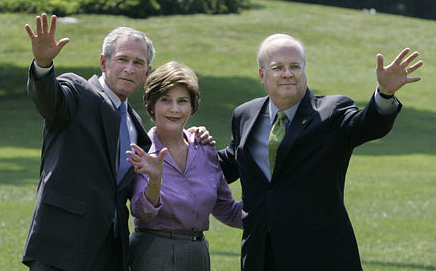
Lawrence Ari Fleischer is an American media consultant and political aide who served as the twenty-first White House Press Secretary, for President George W. Bush, from January 2001 to July 2003.

Valerie Elise Plame Wilson, is an American writer, spy novelist, and former officer who worked at the United States Central Intelligence Agency (CIA). As the subject of the 2003 Plame affair, also known as the CIA leak scandal, Plame's identity as a CIA officer was leaked to and subsequently published by Robert Novak of the Washington Post.
Joseph Charles Wilson IV was an American diplomat who was best known for his 2002 trip to Niger to investigate allegations that Saddam Hussein was attempting to purchase yellowcake uranium; his New York Times op-ed piece, "What I Didn't Find in Africa"; and the subsequent leaking of information pertaining to the identity of his wife Valerie Plame as a CIA agent. He also served as the CEO of a consulting firm he founded, JC Wilson International Ventures, and as the vice chairman of Jarch Capital, LLC.
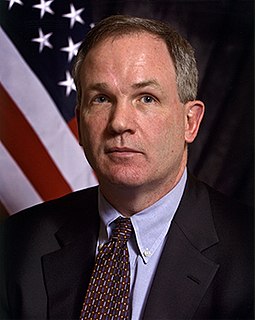
Patrick J. Fitzgerald is an American lawyer and partner at the law firm of Skadden, Arps, Slate, Meagher & Flom since October 2012.
The Plame affair erupted in July 2003, when journalist Robert Novak revealed that Valerie Plame worked as covert employee of the Central Intelligence Agency, although the seeds of the scandal had been laid during 2001 and 2002 as the Bush administration investigated allegations that Iraq had purchased Nigerien uranium.
The Plame affair was a political scandal that revolved around journalist Robert Novak's public identification of Valerie Plame as a covert Central Intelligence Agency officer in 2003.

The White House Iraq Group was an arm of the White House whose purpose was to inform the public about the purpose of the 2003 invasion of Iraq. The task force was set up in August 2002 by White House Chief of Staff Andrew Card and chaired by Karl Rove to coordinate all of the executive branch elements in the run-up to the war in Iraq. However, it is widely speculated that the intention of the task force was "escalation of rhetoric about the danger that Iraq posed to the U.S., including the introduction of the term 'mushroom cloud'".
The CIA leak grand jury investigation was a federal inquiry "into the alleged unauthorized disclosure of a Central Intelligence Agency (CIA) employee's identity", a possible violation of criminal statutes, including the Intelligence Identities Protection Act of 1982, and Title 18, United States Code, Section 793.
Adam Levine is a former political adviser who was a White House deputy press secretary in President George W. Bush's administration from January 2002 to December 2003. In the CIA leak investigation, Levine testified before the federal grand jury in February 2004, and October 2005.

United States v. Libby was the federal trial of I. Lewis "Scooter" Libby, a former high-ranking official in the George W. Bush administration, for interfering with special prosecutor Patrick Fitzgerald's criminal investigation of the Plame affair.

Wilson v. Libby, 498 F. Supp. 2d 74, affirmed, 535 F.3d 697, was a civil lawsuit filed in the U.S. District Court for the District of Columbia on 13 July, 2006, by Valerie Plame and her husband, former Ambassador Joseph C. Wilson, IV, against Richard Armitage (individually) for allegedly revealing her identity and thus irresponsibly infringing upon her Constitutional rights and against Vice President of the United States Dick Cheney, Lewis Libby, Karl Rove, and the unnamed others (together) because the latter, in addition, allegedly "illegally conspired to reveal her identity." The lawsuit was ultimately dismissed.
The Plame affair was a dispute stemming from allegations that one or more White House officials revealed Central Intelligence Agency (CIA) agent Valerie Plame Wilson's undercover status. An investigation, led by special counsel Patrick Fitzgerald, was started, concerning the possibility that one or more crimes may have been committed. The initial focus was on Scooter Libby; however, he was not the primary source of the leak.
On December 7, 2006, the George W. Bush administration's Department of Justice ordered the unprecedented midterm dismissal of seven United States Attorneys. Congressional investigations focused on whether the Department of Justice and the White House were using the U.S. Attorney positions for political advantage. Allegations were that some of the attorneys were targeted for dismissal to impede investigations of Republican politicians or that some were targeted for their failure to initiate investigations that would damage Democratic politicians or hamper Democratic-leaning voters. The U.S. attorneys were replaced with interim appointees, under provisions in the 2005 USA PATRIOT Act reauthorization.
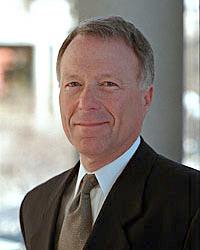
I. Lewis "Scooter" Libby is an American lawyer and former adviser to Vice President Dick Cheney.
During the 2007 Congressional investigation of the dismissal of eight U.S. attorneys, it was discovered that administration officials had been using a private Internet domain, called gwb43.com, owned by and hosted on an email server run by the Republican National Committee, for various official communications. The domain name is an abbreviation for "George W. Bush, 43rd" President of the United States. The use of this email domain became public when it was discovered that Scott Jennings, the White House's deputy director of political affairs, was using a gwb43.com email address to discuss the firing of the U.S. attorney for Arkansas. Communications by federal employees were also found on georgewbush.com and rnchq.org. Congressional requests for administration documents while investigating the dismissals of the U.S. attorneys required the Bush administration to reveal that not all internal White House emails were available. Conducting governmental business in this manner is a possible violation of the Presidential Records Act of 1978. Over 5 million emails may have been lost. Greg Palast claims to have come up with 500 of the Karl Rove emails, leading to damaging allegations. In 2009, it was announced that as many as 22 million emails may have been lost.
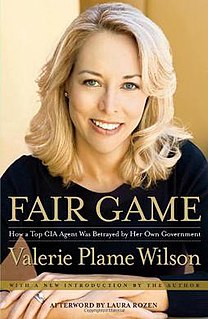
Fair Game: My Life as a Spy, My Betrayal by the White House is a memoir by Valerie Plame Wilson. Mrs. Wilson is the former covert CIA officer whose then-classified non-official cover (NOC) identity as "Valerie Plame" was leaked to the press in July 2003, after her husband, former Ambassador Joseph C. Wilson, IV, had criticized the George W. Bush administration's rationale for the Iraq War. The outing made her the center of the American political scandal known as the Plame affair. Her public outing led to her decision to resign from the CIA in December 2005, when she attempted to retire early at the age of 42. Being told that she could not collect her pension until the age of 56, she determined to write this book both as a means of telling her own story in her own words and as a means of earning income to replace her deferred retirement annuity. She encountered resistance from the CIA in the course of chronicling her work with the organization.
Matthew Cooper is political journalist with a career spanning over 30 years. From 2014 to 2018 he was a senior writer and an editor at “Newsweek”. Before that he was the managing editor for White House coverage at National Journal magazine and editor of “”National Journal Daily” Cooper is a former reporter for Time who, along with New York Times reporter Judith Miller was held in contempt of court and threatened with imprisonment for refusing to testify before the Grand Jury regarding the Valerie Plame CIA leak investigation. He was a blogger for Talking Points Memo in early 2009, and contributed to the magazine Condé Nast Portfolio until it closed in April, 2009, after which he became a correspondent for The Atlantic magazine. He worked for the Financial Crisis Inquiry Commission on a book about the group's findings from the economic collapse in 2010.
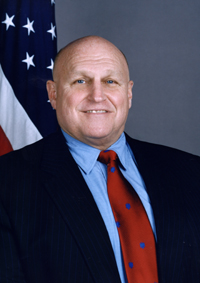
Richard Lee Armitage is an American powerlifter, former diplomat, and government official. In 2003, Armitage set a personal best when he bench pressed 330 pounds.
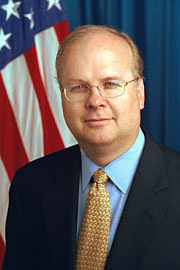
Karl Christian Rove is an American Republican political consultant, policy advisor and lobbyist. He was Senior Advisor and Deputy Chief of Staff during the George W. Bush administration until his resignation on August 31, 2007. He has also headed the Office of Political Affairs, the Office of Public Liaison, and the White House Office of Strategic Initiatives. Rove was one of the architects of the Iraq War.
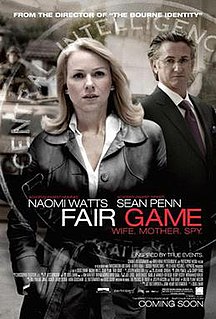
Fair Game is a 2010 biographical political drama film directed by Doug Liman and starring Naomi Watts and Sean Penn. It is based on Valerie Plame's memoir, Fair Game, and Joseph C. Wilson's memoir, The Politics of Truth.
